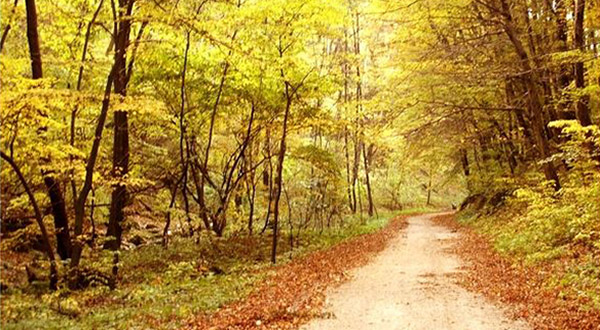For He is Good
Autumn brings another season of, amongst other things, leaves heeding to the call of each tree’s undecipherable clock. Whether it is a tree whose colors remind us of the season, or certain foods that bring back memories (or create new ones) of fall, we can all take comfort in the creation that the Lord has provided us. For some of us that means the firmly entrenched clam, which evades capture until a determined, tireless fisherman brings them to market, so we can indulge in the flavor and aroma of a good clam bake on a glorious Indian summer evening. Or it could be grapes, which generously yield their carefully cultivated nectar, fermented through ageless techniques, only to be enjoyed by eager quaffers the world over, who perhaps never give thought to the precise conditions that produce the perfect complement to a tender rib eye.
Generally speaking it’s harvest time, and nearly everything we grow for our consumption is brought to market. Everything from king crab in Alaska, to the humble apple found in orchards across the Midwest, people are harvesting everything, everywhere. In fact, people enjoy the fruits of the harvest so much, that we organize huge celebrations to commemorate the harvest. We gather together to give thanks for what this season has brought no matter how good or bad it was, and share stories of how the summer went. Whether it was hot and dry, or cold and damp, we still have something to celebrate.
If we carefully observe the festivities around us, we should know that we are blessed with all the abundance that the Lord provides on a daily basis and most peculiarly during the autumn harvest. Just think of all the fairs across the nation. The biggest ones come during harvest, as witnessed by all the contests at the county fairs; whether it is for the best pie, best vegetable garden, the finest cuts of meat, or anything else you can think of. So, without a harvest, there isn’t much to celebrate.
Yet, in spite of all the celebrating, it’s strange that harvest marks the end of something. The end seems to be better than the beginning or middle of the growing season, even after we look out on the vast fields to see trees with no fruit, and stalks of corn with no ears to pick. It’s only weeks later that it dawns on us that the fields are empty, and another winter will set in while we consume the fruit of the land to keep us warm during a long stretch of idleness in the fields. We almost entirely look over the fact that because something came to an end we get to continue on with an idyllic life, because we get to keep just enough from the harvest to make ends meet and plan for the future, but not enough that we are spoiled. Likewise we also don’t experience the hardship of unforgiving poverty in all its manifestations. No, we are grateful for what we have, and thank the Lord for his abundant goodness in good times and bad.
Sometimes we are also astonished by the sheer size of a harvest and want to tell our neighbors what we saw. For instance, when we see the largest pumpkin for the year, it triggers breathless gasps of disbelief at how anyone could grow a pumpkin so large that its only means of conveyance is by crane. On the other end of the spectrum, we sometimes witness a very small harvest. For instance, the Vidalia onion crop in Georgia was nearly wiped out about 14 years ago. Consequently, we didn’t see the big sweet onion for nearly two years in the stores. Or, that’s the story we were told.
Speaking of stories, we also admire and take time to pause and reflect upon stories of harvest, and especially those told to us by Jesus. His words are rich in wisdom and demand our attention because he was able to speak of more than just the harvest of food, he also spoke of the all-important harvest of souls. He told us of the farmer who spread his seed in his field only to be followed unwittingly by his malicious neighbor who spread thistle and weeds. The parable teaches us that evil will live with us in our lives, and we cannot be without it. If we would act on what seems to be a naturally instinctive desire to completely eradicate evil, Jesus has words to the contrary. He reminds us that by culling the weed and thistle you will also uproot the good crop. However, He goes on to say we must wait till the harvest, and on that day, the Lord will gather into his barns all the good crop, and will throw the thistle and weed into an unquenchable fire for an eternity.
So this autumn, let’s take time to thank the Lord for what He has graciously given us, for He is good. And let’s celebrate what we have harvested from our fields, orchards, gardens, or vineyards. The burden of knowing what kind of crop we will have will soon be over, and the whole process will start again this winter. So, whether we had a good year, or bad year, we still have reason to enjoy the fruits of our labor that makes the fabric of our culture come alive here in the U.S. of A.

